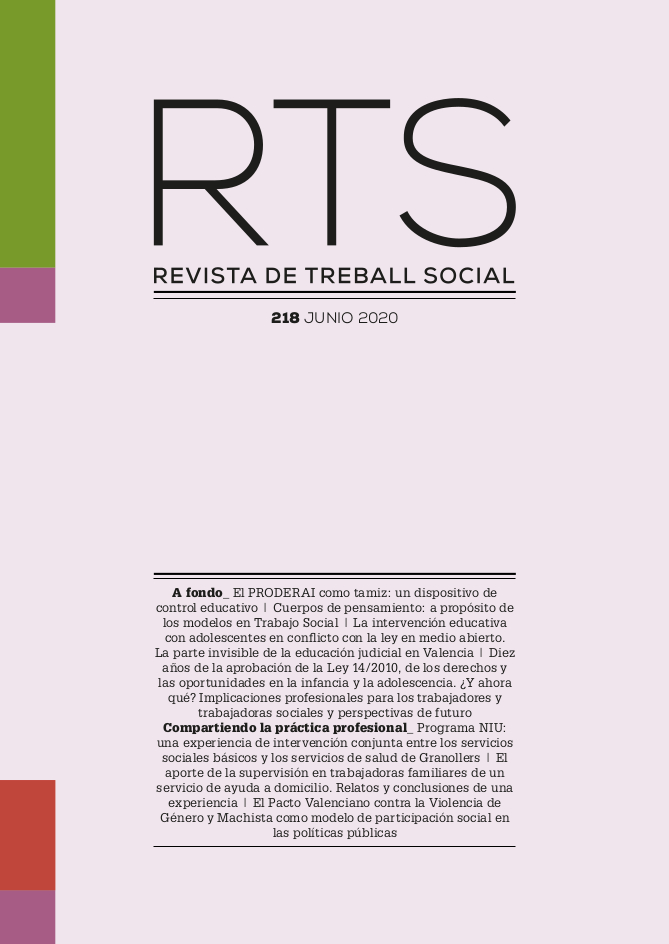Female family workers as professionals are broadly exposed to the emotional effects stemming from bonds of care. They work within the intimate setting of families in contexts where placing boundaries on their duty is by no means simple, and they do this without assistance. They benefit from scarce protection factors and the legitimisation of their knowledge is light years away from receiving public acknowledgment. Their self-perception of their task is conditioned by this. Nevertheless, they are professionals who hardly benefit from having access to supervisory-based settings.
This paper sets out the conclusions drawn from an experience of ten supervision sessions with six female family workers. Through participant observation, the aim is to put together an analytical and descriptive project from “within”. The accounts of the women supervised in relation to what the setting provides to them are shared along with my conclusions as a supervisor. The conclusions link the contributions of the supervision process to the specific needs identified in practicing the professional task. This paper shares the effects and emotions involved in this experience.





